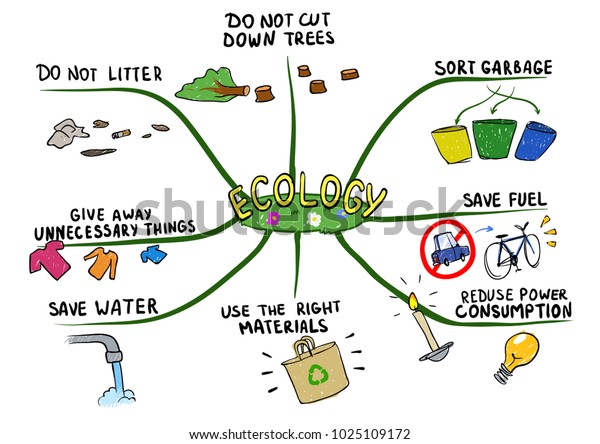Тема програми: In harmony with nature
- What do you know about ecological problems?
- How can we stop them?
- What ecological problems do we have in our region?
https://www.liveworksheets.com/w/en/social-science/479769
- What do you know about ecotourism?
- HOW CAN I SAVE THE WORLD?
Grammar: https://www.perfect-english-grammar.com/first-second-third-conditionals-exercise.html
- What interesting facts about youth do you know?
Watch the video and write down what problems can have young people?
Ex. 6 p. 77
I. Mark if the
sentences are true or false.
- WENDY's
school is in a small town on the coast.
- One of the
problems they’ve been having because of tourism in their town is all the
litter that gets left on the beaches.
- All litter
is left by tourists there.
- Once a week
during the spring they organised themselves into work parties and cleaned
the beaches.
- TONY is a
member of citizenship classes who
visit elderly people in the community, who have difficulty in doing things
for themselves.
- They go to the shops and help out in the
house and garden.
- Sometimes, they
just have a chat with elderly
people.
- Tony thinks that it’s important for different generations
to look out for each other.
- ALEX is
volunteer with the local mountain rescue service.
- Alex sure
that mountains is quite a wild and safe place.
- Visitors receive instructions on first aid and
how to use maps and compasses.
- Last summer, Alex helped to find a walker who had fallen and broken his arm.
Read the text 1.
Colchester is a small university town 80 km to the
northeast of London, approximately 45 minutes by train. It is a very
beautiful town, and students are very happy here because there are so
many facilities and good entertainment. It is very famous for being the
oldest town in England.
There is the only English Language School in
Colchester, and it was founded thirty years ago by Oxford University
Press. There are twenty classrooms, a video player in every room, a video
library, a multimedia Centre with free e-mail facilities, a library and a
listening Centre, the Internet access, a restaurant and a beautiful
garden here. They also arrange course for children and young people in
homestay and in residential accommodation.
Courses are organized at seven levels. The maximum
group size is 13 (average is 10). Each level lasts 8 weeks, but you can
stay for only two weeks if you want.
In summer many students stay for two or three weeks.
You can start on any Monday as the course is organized in weekly units.
All lessons last 50 minutes. You can choose options in Business English
or International Affairs. They also organize examination courses and a
course that is called English for Academic Study for students who want to
learn English for studies. Some students also choose to have extra
private lessons.
There is a free daily social program: clubs, tea
parties, etc. Young people can have fun at a free party every Thursday
evening.
Task 1.1. Read the
statements and decide if they are TRUE or FALSE according to what the
text says.
1. Colchester
English Language School was founded 30 years ago by Oxford University
Press
2. Colchester is the oldest
university town in England.
3. Each of seven course level lasts
8 weeks.
4. You can start on any Monday and stay at courses for
two or three weeks.
5. Children and
young people can learn English in homestay and in residential accommodation.
6. Every Thursday
evening young people enjoy a free party at English Language School in
Colchester.
Task 1.2. For
question (1 – 4) choose the answer (A, B, C or D) which you think fits
best according to the text.
1. Colchester is a
small university town 80 km __________
A to the northwest of London
B to the towards to London
C to the northeast of London
D to the east of London
2. Students are very happy here
because______________
A there are a lot of
facilities
B there is a good atmosphere
C there are a lot of free parties
D they can play at the band here
3. The writer says that some
students also choose to have____________
A
extra single lesson
B extra private lessons
C just lessons
D
lessons without teachers
4. The word ―arrange” in
line 7 means
A to settle down
B to organize
C to put
D some disposition
Task 1.3. For
question (1 – 4) choose the answer (A, B, C or D) which you think fits
best according to the text.
1. All lessons
last________
A an hour C an hour without ten
minutes
B a half an hour D a quarter of an hour
2. Colchester is a small university town________
A less than one hundred km to the northeast of
London
B 50 km to the northeast of London
C more than one hundred km to the northeast of
London
D 80 km to the west of London
3. The maximum
group size in Colchester University is__________
A
more than twenty students C
10 students plus three
B less than five students D without
restriction
4. Each level lasts____________
A two weeks C eight days
B two months D eight weeks
Read the text 2
Hinemoa was a beautiful daughter of a native chief who
lived near a great lake in New Zealand. In the middle of the lake there
was an island. Tutanekai, a brave young warrior, lived with his tribe on
the island. One day Hinemoa's father gave a great feast where many young
Maori warriors from different tribes were present. These all young
warriors danced and sang at the feast. Tutanekai was among them. He was
the most handsome and the bravest warrior. He sang and played his flute
beautifully. Hinemoa fell in love with Tutanekai and he fell in love with
her. But when Hinemoa told her father that she loved Tutanekai and wanted
to become his wife, the old chief became very angry and said 'You are the
chief's daughter and you must marry a chief. Forget that man. If you try
to see him, I shall lock you in the house. If he comes to our village, he
will die'. Hinemoa was unhappy. Tutanekai's friends told him he did not
have to leave his island. Then in the evening Hinemoa heard the sound of
a flute. It came across the lake from the island.
Tutanekai's flute told Hinemoa about his great love.
Night after night Hinemoa went down to the shore to listen to Tutanekai's
flute and dreamed of meeting him. This made her father still angrier. He
ordered his warriors to take away all canoes from the water so that his
daughter might not go to the island in one of them.
For a time Hinemoa spent her evenings near the lake
always looking towards the island but she never found a canoe there,
which could take her across the water. At last Hinemoa thought of a plan.
She tied six empty gourds together as floats. She hoped that they would
help her to reach to the island. The island was very far and even at the
daytime it was very difficult to approach to it. She decided to start at
night when nobody could see her. She waited for the night when the moon
would be behind the clouds and when it grew dark she slipped into the
water and began to swim. It was quite in the village. Nobody saw her. But
how cold and dark the water was! Something touched her leg and she got
terribly frightened, but she swam and swam, until she was so tired and
weak that she could not swim any longer. She cried out in the darkness.
Then the moon came out from behind the dark cloud and the girl saw that
the island was near. A few minutes later she could feel the grounds under
her feet. She rested for a moment then she came to realize that the water
was warm: there was a hot spring nearby. She entered the warm water and
got stronger. Hinemoa found Tutanekai and became his wife. They lived on
the island happily for many years. Hinemoa's father could not be angry with
his daughter for a long time. Soon he came to the island with many
beautiful gifts to her and Tutanekai. The hot spring, which gave her life
and strength back, has been known as Hinemoa's Bath then.
Task 2.1. Read the
statements and decide if they are TRUE or FALSE according to what the
text says.
1. Tutanekai, a
brave young warrior, lived with his tribe in the desert.
2. Hinemoa fell in
love with Tutanekai.
3. Hinemoa told
her father that she loved Tutanekai and wanted to become his wife.
4. Tutanekai's friends told him he
had to leave his tribe.
5. In the evening Hinemoa heard the
sound of a violin.
Task
2.2. For question (1 – 4) choose the answer (A, B, C or D)
which you think fits best according to the text.
1. Hinemoa’s dwelling was located_______
A in a big wood
B close to a pool
C far from a lake
D in the capital of New Zealand
2. Tutanekai lived__________
A in New Orleans
B on the isle
C near big river
D in the middle of the lake
3. Hinemoa used ________ to get to
the island
A some empty gourds
B a lot of apples
C a board
D six sticks
4. Hinemoa waited________
A for the morning
B for the beginning of the day
C for the end of the day
D for the day
5. Hinemoa’s father swam up to the
isle with______
A anger
B a lot of presents
C love
D a single gift
Тема уроку (43): Контроль навичок письма
Do the writing test (виконайте письмову роботу за посиланням) https://app.wizer.me/learn/U0ZUTY
Тема уроку (44): Контроль навичок говоріння
Prepare short texts according to the proposed topics, make a video, send it to viber or telegram.
- Youth problems in the world;
- Modern art in the 21st century;
- The impact of modern technologies;
- The most dangerous ecological problem of today's life.





Немає коментарів:
Дописати коментар